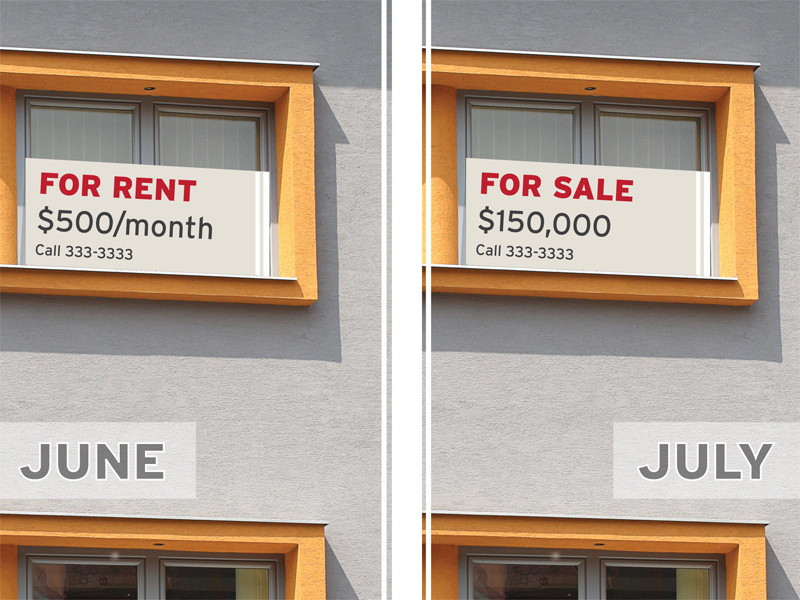Stopping a city of condos may not require provincial permission
Some activists argue condo conversion debate misses the point of affordable housing
While the City of Winnipeg’s administration is looking at how to address the current shortage of affordable rental units, confusion remains over whether the city needs provincial legislation in order to regulate condominium conversions.
“We’re losing affordable rental accommodation with condominium conversions,” said Fort Rouge councillor Jenny Gerbasi. “Some cities have regulated this without enabling legislation from their provinces, but I don’t see the commitment yet from our mayor to do something about this.”
Condo conversion is the process of turning rental units into condominiums for individual purchase. Under current provincial legislation, tenants can stay in their apartments for at least two years after their landlord has given notice that the apartment will be converted into a condominium.
Tenants of apartments being converted to condominiums have the first bid to buy their unit, should they choose to do so.
Cities like Regina, Ottawa and Saskatoon have set limits on condo conversions when vacancy rates drop to three per cent.
Ellen Kruger, advocate with the Right to Housing Coalition, wonders if the city’s hesitancy to regulate condo conversions is a matter of political will.
“The city successfully approached the province of Manitoba to help speed up the demolition process for empty properties, so the city could just as easily approach the province on regulating condo conversions,” Kruger said.
In the wake of the Condominium Act review, provincial officials have stated in The Uniter that the Act does not currently address condo conversions, but it could, if public feedback calls for that.
Gerbasi put forth a city council motion on May 19 to look at affordable housing options, including consultations with the province and other stakeholders.
“ This debate is really about the market’s inability to respond to provide adequate housing at the most affordable level.
Jino Distasio, director, University of Winnipeg Institute of Urban Studies
Kruger notes that Right to Housing has yet to be approached by the city to share their views.
The report is due back to council within 120 days from the motion, which would be early November.
“The research is still in progress and the report will be brought to council in the coming months,” said Steve West, manager of corporate communications for the City of Winnipeg.
Gord Steeves, councillor for the St. Vital ward, was the head of the Planning and Property Committee when the May 19 motion was brought forward.
He is uncertain about whether the city can regulate condo conversion without changes in provincial legislation.
“I don’t know how our administration feels they can really affect things,” Steeves said. “Our administration may come back and say there’s a limited amount of things we can do here.”
However, debates about whether the city should regulate condo conversions detract from the need to look at the overall shortage of housing at all price levels, Steeves notes.
“We need more of both rental and condominium units,” he said. “We want more people to have the home ownership experience in changing neighbourhoods like Spence and West Broadway, and for many people, that home is a condominium.”
Jino Distasio, director of the Institute of Urban Studies at the University of Winnipeg, notes that regulating only one portion of the housing market, like condominiums, will not do anything to increase availability of affordable housing.
“This debate is really about the market’s inability to respond to provide adequate housing at the most affordable level,” Distasio said.
He notes that government’s best role is intervening in the lower end of the housing market to provide subsidized housing for those people who can’t afford to enter the housing market.
Published in Volume 65, Number 11 of The Uniter (November 11, 2010)







